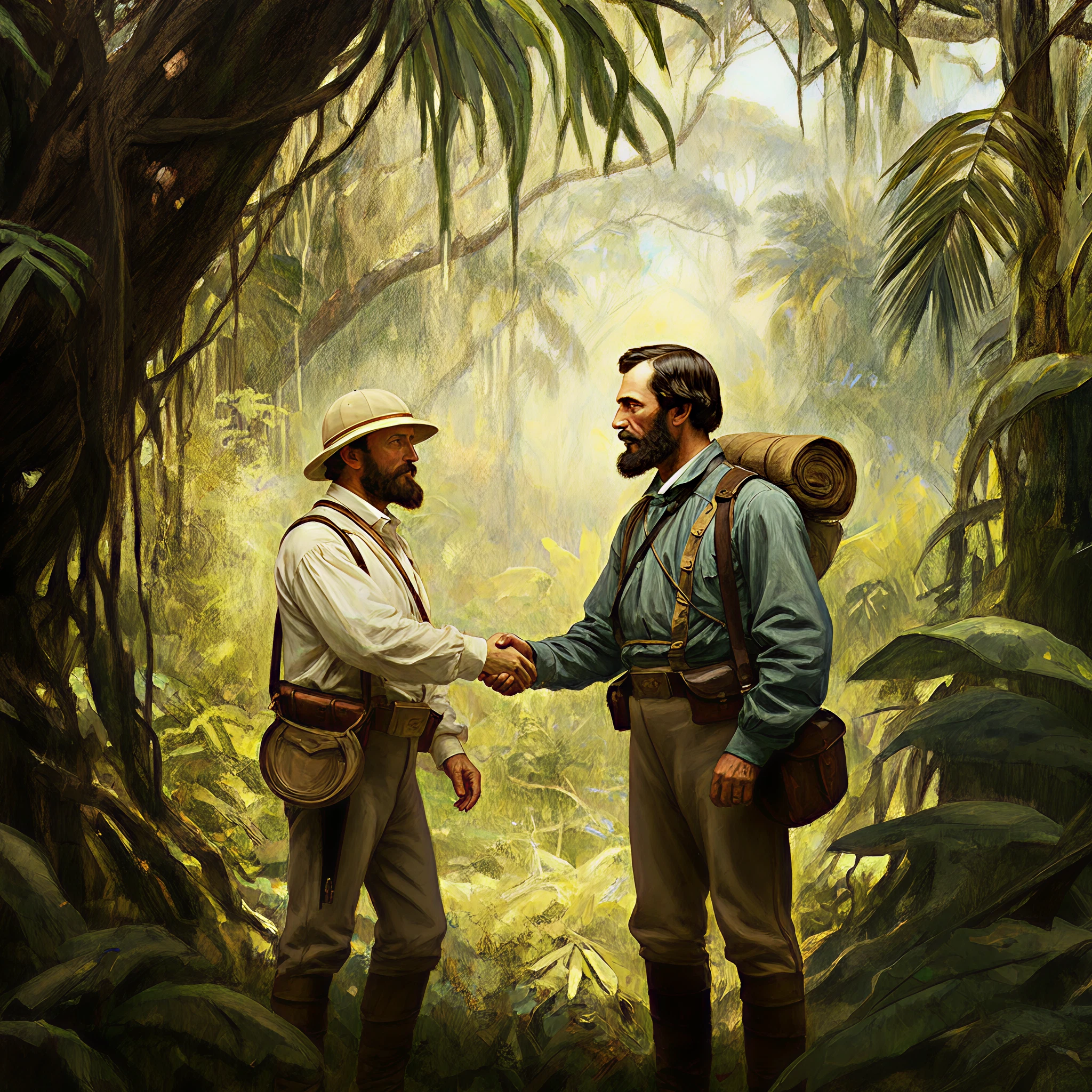The names Stanley and Livingstone evoke tales of daring exploration, cultural encounters, and one of history’s most famous phrases. Their meeting in 1871 remains a defining moment in African exploration and offers a window into the complex dynamics of European expeditions during the 19th century. Here’s a look at their story, their contributions to history, and the legacy that continues to inspire and provoke discussion today.
Setting the Stage for the Meeting
Dr. David Livingstone, a Scottish missionary and explorer, spent years traversing Africa, documenting geographic landmarks, encountering unfamiliar cultures, and advocating against the slave trade. However, his prolonged absence led many in Britain to assume he had perished. Enter Henry Morton Stanley, a journalist dispatched by the New York Herald to locate the long-missing Livingstone. For Stanley, this mission wasn’t merely journalism; it was a chance to make a name for himself on the global stage.
After a grueling and dangerous trek through East Africa with the help of local African guides and porters, Stanley finally encountered Livingstone in the town of Ujiji, near Lake Tanganyika. Surrounded by onlookers and weary from months of travel, Stanley famously greeted him with the words, “Dr. Livingstone, I presume?”
“Dr. Livingstone, I Presume?” in Popular Culture
This phrase has become shorthand for momentous introductions and unlikely meetings. Although Stanley himself recorded the greeting in his journal, some historians question its authenticity. Regardless, the words have embedded themselves in popular culture, appearing in books, movies, and even parodied in comedic sketches.
Hollywood immortalized their meeting in the 1939 movie Stanley and Livingstone, starring Spencer Tracy as Stanley and Cedric Hardwicke as Livingstone. While the film took significant liberties with historical accuracy, it reinforced the notion of Stanley as a hero of exploration and Livingstone as a tireless humanitarian.
The Impact of Their Encounter
The meeting of Stanley and Livingstone rekindled global interest in African exploration. For Livingstone, it provided an opportunity to bring attention to the devastating impact of the slave trade, which he passionately opposed. For Stanley, the encounter boosted his reputation and marked the beginning of his career as one of the most prominent explorers of the era.
Stanley would go on to chart the Congo River and work on behalf of King Leopold II of Belgium to establish control over the Congo Free State. This aspect of Stanley’s career, however, is fraught with controversy, as his work facilitated one of the most exploitative colonial ventures in history.
Livingstone’s Contributions to African Exploration
Livingstone’s legacy is steeped in his dual roles as a missionary and explorer. He is credited with mapping uncharted regions of the African continent, including the Zambezi River and Victoria Falls. His journals provided valuable insights into the geography and cultures of the areas he explored, though his writings often reflected the colonial mindset of the period.
The Ethical Debate Around European Exploration in Africa
The explorations undertaken by Stanley and Livingstone were emblematic of the broader European expansion into Africa. While these expeditions contributed significantly to global understanding of African geography and cultures, they also paved the way for colonial exploitation. The reliance on African guides and porters, often overlooked in histories of exploration, serves as a reminder of the critical role played by local communities in these ventures. Many African participants offered indispensable knowledge, yet they frequently endured harsh conditions and were excluded from the accolades.
This ethical tension invites a broader discussion on the nature of exploration during the colonial period. Can the scientific and geographic advancements justify the exploitation that accompanied them? The stories of Stanley and Livingstone provide a nuanced lens through which to consider this question.
Legacy and Inspiration for Modern Adventurers
Today, the story of Stanley and Livingstone continues to inspire adventures and scholars alike. Their perseverance, curiosity, and commitment to their respective missions resonate with those passionate about discovery. At the same time, their story serves as a critical reminder of the importance of ethical engagement with the world around us.
Numerous works of art, literature, and documentaries explore their lives and contributions. From Stanley’s descriptive memoirs to modern interpretations like the 1939 Hollywood movie, their meeting has become a cultural landmark.
Call to Action
Curious to learn more about Africa’s rich history and culture? Explore the lesser-known contributions of African communities to global history, or consider supporting initiatives that highlight local perspectives. By broadening our understanding, we can honor the complexities of the past and nurture a more inclusive dialogue about cultural heritage.
Image Ideas:
- A map highlighting the locations of Stanley and Livingstone’s expeditions, including Ujiji and Lake Tanganyika.
- An artistic representation of their first meeting, with a focus on the diverse and vibrant setting of the local community.
- A photograph or illustration of Victoria Falls, one of Livingstone’s most famous discoveries.
Dive deeper into this historic encounter and discover a world of exploration, cultural exchange, and critical reflection.








